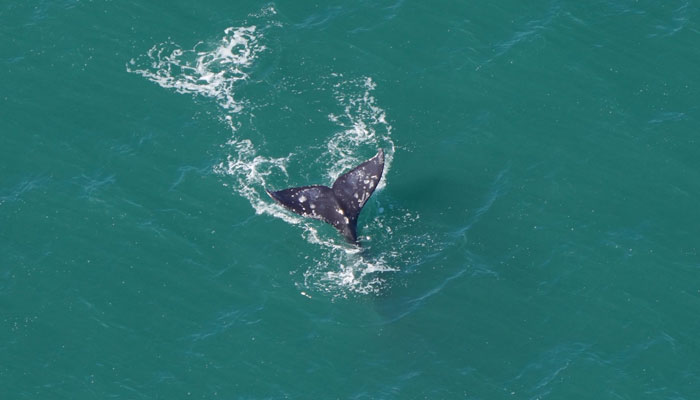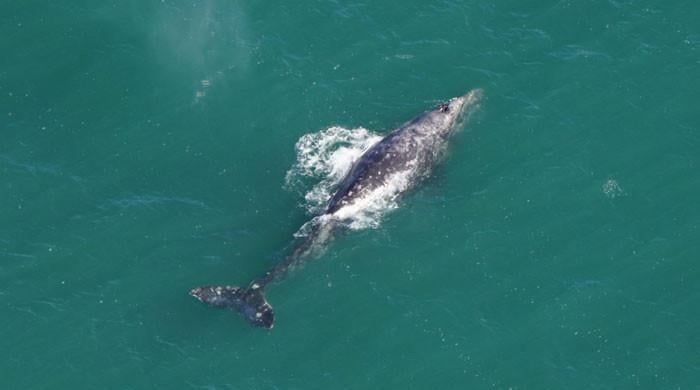Gray whale spotted by New England Aquarium aerial survey team off the coast of Nantucket Island
A gray whale, which has been considered extinct in the Atlantic Ocean for more than 200 years, recently reappeared off the coast of Massachusetts' Nantucket Island in an incredibly rare event. ABC News reported.
The New England Aquarium's aerial survey team announced last week's rare sighting in a recent press release, while noting that gray whales are “predominantly seen” in the North Pacific Ocean and disappeared from the Atlantic in the 20th century. XVIII.
“This whale somehow crossed from Alaska, through the Arctic, into the Atlantic Ocean,” said Orla O'Brien, an associate research scientist who spotted the gray whale, as she discussed the creature's journey through the Northwest Passage. .
Initially, the research team was not sure if they had seen a gray whale.
The absence of a dorsal fin, mottled gray and white skin, and prominently furrowed dorsal hump on gray whales distinguish them from other species.

According to the release, the aerial survey plane circled the area for 45 minutes to capture the whale as it repeatedly dived and reappeared, appearing to be feeding.
Despite the extinction in Atlantic waters, aquarium researchers revealed that five sightings of gray whales have been reported in Atlantic and Mediterranean waters over the past 15 years.
Previously, in December of last year, a gray whale was spotted off the coast of Florida and aquarium researchers suspect it is the same whale spotted off Nantucket.
Researchers speculate that rising global temperatures may have affected the whale's journey through the Northwest Passage, as there is less sea ice in the summer.
“The extent of sea ice typically limits the range of gray whale species,” the researchers explained. “Now, gray whales can potentially travel through the Passage in summer, something that would not have been possible in the previous century.”
O'Brien says the most recent gray whale sighting is noteworthy within a broader discussion about the potential effects of rising global temperatures on marine life.












